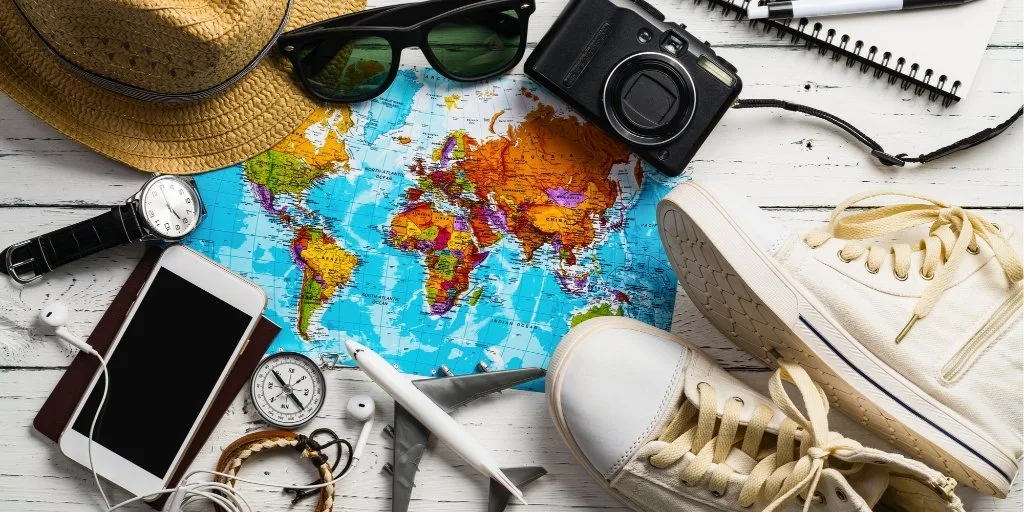Millions of people throughout the country and around the globe have had their travel plans impacted by the spread of COVID-19. Many were left struggling to find their way home when lockdowns began. Others, on the other hand, were left canceling their future travel plans for the summer months. While parts of the country and world are beginning to reopen, eager tourists are looking to make up for lost time. However, with the virus still spreading, it’s always possible that travel cancellations and restrictions will continue throughout the remainder of the year. If you’ve already experienced changes to your travel plans, or have plans for an upcoming trip, here are several tips for dealing with restrictions and cancellations.
Tips For Adjusting To Coronavirus Travel Changes
Keep Copies of Documentation
Keeping all the necessary documents organized is one of the most important things you can do as a traveler. Copies of your documents are the best form of proof whenever something comes into question. With the current global health crisis, you may be required to provide these documents more than usual as restrictions are constantly changing.
You should make both physical copies that you can carry with you, and digital copies. If you want to be extra cautious, make double the amount of copies. You can leave the set with a friend or family member back home. Should you lose your printed copy and can’t access the digital copy, you can always give them a call.
Here is a list of all the travel documents you should make a copy of:
- Passport: keep a paper copy and photocopy of the identification page
- Driver’s license: acts as an additional form of identification
- Lodging reservations: print out the booking and request an email confirmation
- Travel insurance: keep an additional copy of each piece of luggage in case one is lost or stolen
- Debit and credit cards: carry your physical card and have access to your finances through an online banking mobile app
- Plane/train/bus tickets: have a printed copy and check if the service has an app
- Car rental reservations: carry a copy of the rental agreement in case you’re in an accident
- Health documentation: create a medical portfolio with information like emergency contacts, medication information, and insurance cards
Travel Insurance
With the chance that your trip may need to be cancelled, you should consider buying travel insurance. Obviously it will cost you more money, but it pales in comparison to the total cost of your trip. Oftentimes, people are willing to take the risk that nothing will happen and opt not to buy insurance. But if something unexpected were to happen that caused a cancellation, you could save hundreds, if not thousands of dollars, with travel insurance.
When purchasing travel insurance there are many plans at various prices. You should do plenty of research before deciding which plan is best for you. Typically, travel insurance may cover cancellations for unexpected reasons like illness or a death in the family. However, in some cases, this does not cover COVID-19. This is because the coronavirus is currently a global health pandemic and is not considered “unexpected.”
If you want to be assured that your travel insurance will cover COVID-19 related cancellations, you need to purchase the ‘cancel for any reason’ option (CFAR). Even with this option, you’re probably going to pay even more, and you might only get back half of what you paid. However, if you still want to travel and are worried that you may have to cancel due to the virus, CFAR is the only guarantee.
Worried about travel cancellations? Book refundable reservations
Whether you’re booking a flight, hotel, or group tour, there’s usually an option to choose a refundable reservation. These options are just like travel insurance, they’ll cost you more upfront. However, they will save you money on the back end if you need to cancel. Do be careful, though, because some refundable options will still charge travel cancellations fee on top of the increased price for the reservation itself.
In order to find the best refundable options, you’ll need to do some research and price comparisons. Not all markups are the same. For example, some airlines may increase the ticket price by a few hundred dollars. On the other hand, others may double or triple the price. In any case that you didn’t purchase a refundable ticket, you can always attempt to persuade the airline or travel agency to give you a credit or exchange your reservation for a future booking.
Opt for adaptable travel options
The more power and options you have when decision-making during your trip, the more easily you’ll be able to adapt. It will take more planning on your part to make itineraries and come up with back-up options, but you’ll be able to easily change plans on the fly if you need to. Basically, do everything you can to put choices in your own hands.
One popular travel option during quarantine has been RVing, presumably for it’s safety and flexibility. In an RV you have the ultimate freedom to choose where you want to go and when. If certain areas begin to see a rise in cases, you can just opt to go somewhere else. This is why it’s important to make a plan, but also have a back-up option. With thousands of RV sites around the country and world, you can go almost anywhere and find a place to stay.
The bottom line
The coronavirus has created many complications for travelers and travel cancellations have cost people a lot of money. However, people are still eager to get back to travelling. With due diligence and proper planning, your travel plans may become more easily adaptable and financially stable to handle any travel cancellations and restrictions that may arise.
Read more
There is art and science to packing a bag for travel. Here are some great tips to follow. Click here.




